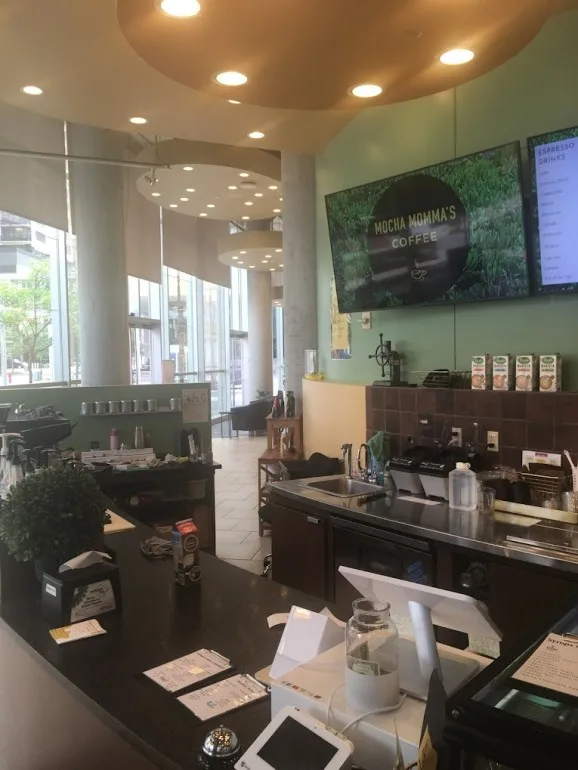” data-medium-file=”https://i0.wp.com/spokesman-recorder.com/wp-content/uploads/2023/08/BBS.MochaMommasCoffee.01-1.jpg?fit=336%2C224&ssl=1″ data-large-file=”https://i0.wp.com/spokesman-recorder.com/wp-content/uploads/2023/08/BBS.MochaMommasCoffee.01-1.jpg?fit=771%2C514&ssl=1″ decoding=”async” width=”771″ height=”514″ src=”https://i0.wp.com/spokesman-recorder.com/wp-content/uploads/2023/08/BBS.MochaMommasCoffee.01-1.jpg?resize=771%2C514&ssl=1″ alt class=”wp-image-1130707″ srcset=”https://i0.wp.com/spokesman-recorder.com/wp-content/uploads/2023/08/BBS.MochaMommasCoffee.01-1.jpg?resize=771%2C514&ssl=1 771w, https://i0.wp.com/spokesman-recorder.com/wp-content/uploads/2023/08/BBS.MochaMommasCoffee.01-1.jpg?resize=336%2C224&ssl=1 336w, https://i0.wp.com/spokesman-recorder.com/wp-content/uploads/2023/08/BBS.MochaMommasCoffee.01-1.jpg?resize=768%2C512&ssl=1 768w, https://i0.wp.com/spokesman-recorder.com/wp-content/uploads/2023/08/BBS.MochaMommasCoffee.01-1.jpg?resize=750%2C500&ssl=1 750w, https://i0.wp.com/spokesman-recorder.com/wp-content/uploads/2023/08/BBS.MochaMommasCoffee.01-1.jpg?resize=1140%2C760&ssl=1 1140w, https://i0.wp.com/spokesman-recorder.com/wp-content/uploads/2023/08/BBS.MochaMommasCoffee.01-1.jpg?w=1368&ssl=1 1368w” sizes=”(max-width: 771px) 100vw, 771px” data-recalc-dims=”1″>
A place for coffee, community, and youth development
In 1990, Melanie March Leehy, whose Christian faith has always guided her community work, was inspired to launch a nonprofit called The Dwelling. “It was a coffeehouse that mentored urban youth and gave them a place to be loved and to call home,” says Leehy, who is almost 60 now, recalling her first coffee shop.
“It was in Anoka, of all places. We averaged 150 kids every Friday and Saturday night, giving them a place to do their art, to do their music, and just be kids.”
Before opening The Dwelling, she had been doing community outreach with youth in Uptown, back in the 1980s and 90s. Even so, she said, “I still never got to realize the full-fledged vision of what I wanted to do.”
After The Dwelling, “I moved my nonprofit to North Minneapolis,” she continued. “I didn’t have the cash to put on the table to buy the space and someone else did.” In the meantime, a friend of hers asked her to be the general manager of his coffee shop at Bordertown Coffee on the U of M campus, where she worked for a few years before opening Mocha Momma’s Coffee.
“Because I was there [at Bordertown], that’s how I learned about the space in the Minneapolis Central Library opening up,” she said of her current location on the first floor of the public library building at 300 Nicollet Mall. “They only reached out to viable coffee shops. And because I was managing Bordertown, that enabled me to launch my vision of a permanent space to mentor youth.”
– ADVERTISEMENT –
Besides coffee, Mocha Momma’s serves iced beverages and made-to-order sandwiches. On average she employs five local youths.
MSR: How did this space come together?
MML: There was a bidding process for the library location because Hennepin County reached out. I had to show that I had a history of managing a coffee shop business. I had to show what my plan was. And my plan was to be a sustainable coffee shop, and a track record of community service mentoring urban youth. They really liked that idea.
I was able to open on June 1, 2022. I’m still in the fundraising phase, so that the coffee shop is sustainable. But once things are running smoothly, then I will add the mentoring part of the program, and that will be primarily for African American youth.
MSR: How do you mentor youth?
– ADVERTISEMENT –
MML: The mentoring program will teach basic job skills and life skills. When they graduate from that they can apply to do more. They can then become an intern and learn the food industry. I think it’s important that when people have internships or do volunteer work that it’s a growth opportunity. I actually put together the menu so that it allows them to have things to do in the kitchen.
Because there’s so much to learn in the food industry, then they can apply it to be a barista and learn coffee-making skills. Right now, anybody that’s on my staff, they start with a blue apron, which means they’re in training, or they’re only preparing the food part, or they’re a volunteer.
After they go through the training process as a barista, then they can switch to a black apron. I can say, ‘Okay, you’re fully trained. You’re a barista.’ There’s so many layers and levels to understanding the coffee industry.
After the group training, they’ll stay connected with the people that are leading in the training, but they will be assigned a one-on-one mentor who will work alongside them. My goal is to not just say, ‘Okay, we’ve had this person in our program for nine months or 18 months.’ We’re going to work alongside them for those 18 months, two years, five years, 10 years.
We’re going to see them come into the fullness of who they are and what their destiny is. That’s what I’m working for, is to see people fulfill their calling.
– ADVERTISEMENT –
I teach our staff and those who are going through the internship to learn professionalism, to learn the food industry, to learn about the hospitality industry. Hospitality skills can go a long way. If you learn customer service, learn how to greet people, give them the respect that everyone is due—no matter what their background, or what’s going on in their day—you’re gonna go a long way.
MSR: Why coffee?
MML: Coffee is a connection for millions of people. Coffee shops and coffeehouses are great for people to come together and meet. People will come in and take their time to do their personal reading, to work on their graduate program, to work on their GED.
I’ve seen people come in here and meet with their parole officer. I let them know that they’re welcome to bring any of their clients in here and do their one-on-ones. There are some people who come in just to meet with their navigator for housing. Some people come in in a cluster.
It’s funny, but when I had this idea back in 1990, there weren’t coffeehouses in the Twin Cities. Someone said to me, ‘Why do you want to do coffee? No one’s doing coffee. It’s not going to work.’ My response to them was, ‘If God wants a coffeehouse, God gets a coffee house,’ because it wasn’t my idea.
– ADVERTISEMENT –
By 1996, when I launched The Dwelling, someone said, ‘There’s coffee shops everywhere. Why do you want to do that?’ My answer was still the same. ‘If God wants a coffeehouse, God gets a coffeehouse.” There’s always going to be the naysayers.
MSR: How does your business impact the community?
MML: Once the coffee shop has the mentoring program fully up and running, I will give people the opportunity to learn about and participate in that. It impacts communities person-to-person, home-to-home, and neighborhood-to-neighborhood.
MSR: What’s your most popular item on the menu?
MML: We have a house latte called “The Momma’s Mocha.” You can have it hot or iced. It has espresso and chocolate sauce. Our chocolate sauce does not have dairy in it. So, people who are vegan have the option to enjoy it, as well as their choice of milk—whether it’s cow’s milk or an alternative. It also has caramel sauce and toffee nut syrup.
MSR: What other items do you sell?
MML: We have matcha. Our matcha is ceremonial grade, which is richer. For people who aren’t familiar with matcha, it’s a green tea that is in powder form. You mix it with either hot water or with milk. We have an island hibiscus iced tea that has ginger beer mixed in with it. And we’re launching our lavender-matcha lemonade, either this week or next week.
As far as our food goes, people love our biscuits. We have a breakfast biscuit that comes with egg and cheese. For an upcharge, we can put it on a croissant, add bacon or turkey sausage. I love having an option that does not include pork because not everybody’s into pork whether for health or religious reasons.
We have Nordic waffles. It’s a round skinny waffle that you fold in half, and it has a fried egg and cheese, and it’s going to have either bacon or sausage on it. So, and you can have it with syrup or and or hot sauce.
MSR: What has been your biggest challenge in owning a business?
MML: There’s a couple things. One is consistency of employment. I’ve spent more money just training and retraining people rather than having a steady flow. Young people right now, they’ll do something and then they’ll change up and do something else.
And the next challenge, I would say, is the transient community. They’re not in here all the time, but enough where it can make it challenging for my staff. I can’t be here all the time to navigate those conversations. And thus, I built the auxiliary team to handle those interactions.
MSR: What has been the most rewarding part of owning your business?
Melanie: Seeing lives impacted. Sometimes you can impact a person’s life in five minutes by honoring them and providing them with a drink that they’re going to remember and enjoy. The other is a long-term commitment, seeing a person get their life on track.
MSR: What are your goals for your business? What does success look like for you?
MML: I’m not sure if I can answer that question more than I already have. Being a sustainable coffee shop and then adding in the mentoring part for our African American youth.
MSR: What advice would you give to an aspiring entrepreneur?
MML: Do your homework on whatever venture you want to pursue. Ask questions. Staying “teachable” is really important. You need to have your finances together and have a good team around you.
Put yourself in a place to learn. The minute I knew I wanted to do this, I switched my career. I was in banking for a decade. I resigned from that job, and I got a job working in a restaurant just so I could learn first-hand about the food industry. There’s other classes and stuff you can take, but I wanted to see it from that side of the business.
Once you set your mind to it, just be sure of your goals and go for it. Even if it’s one step at a time, never give up.
Mocha Momma’s Coffee is located at 300 Nicollet Mall, on the first floor next to the entrance to the public library. For more information, go to their Facebook page or call 612-474-5400.
Support Black local news
Help amplify Black voices by donating to the MSR. Your contribution enables critical coverage of issues affecting the community and empowers authentic storytelling.



